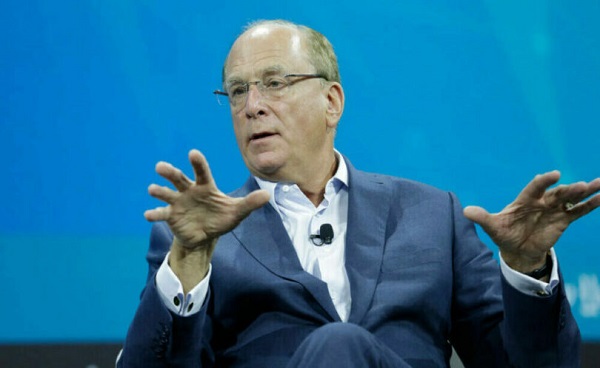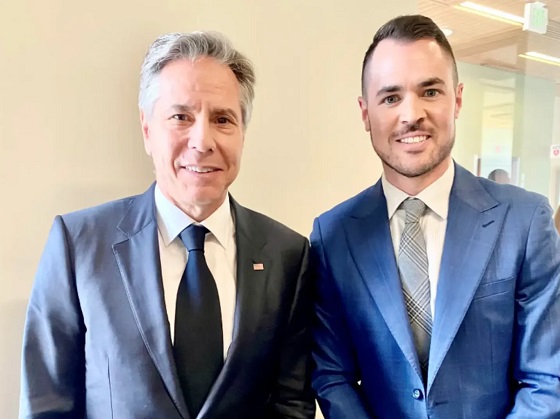Frontier Centre for Public Policy
The Kamloops Hoax Is Costing Taxpayers Billions
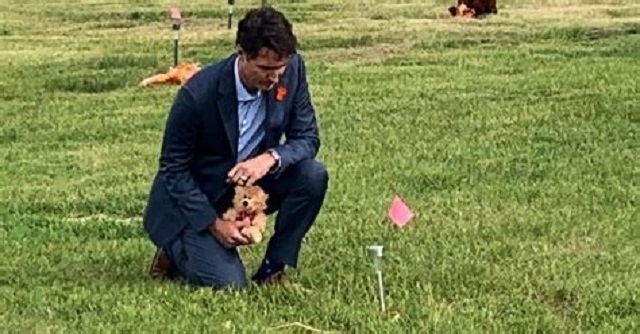
From the Frontier Centre for Public Policy
The vast scale of the waste, the damage to Canada’s international standing and the willingness of political leaders in all parties to accept a falsehood without question demand a full public inquiry. Such an inquiry should be led by someone with the stature of Preston Manning or Jean Chrétien—someone trusted across party lines to tell the truth.
No graves have been found but the spending hasn’t stopped—and no one in Parliament is asking the hard questions
The “Kamloops Hoax” is the largest misuse of taxpayer dollars in Canadian history, yet, unlike past scandals, the Official Opposition has failed to challenge it.
Critics use the term “Kamloops Hoax” because, more than three years after the 2021 announcement that 215 Indigenous children’s remains had been detected at Kamloops, no human remains have been recovered and no forensic evidence has confirmed the claim.
It’s worth recalling how past scandals have been handled when governments were caught misusing public funds.
In earlier eras, major political scandals brought down governments. The Pacific Railway Scandal toppled John A. Macdonald’s Conservatives less than a decade after Confederation, when opportunists exploited an over-generous government eager to complete a vital national railway. Public money was handed out freely, political allies were enriched and the opposition of the day seized the opportunity to expose the waste and corruption.
More than a century later, the Sponsorship Scandal forced Jean Chrétien’s Liberals from office after it became clear that party operatives had misused public funds in Quebec. Again, the opposition—then the Conservatives—did its job. The wrongdoing was debated in Parliament, reported in the press and discussed by Canadians from coast to coast. In both cases, the system worked because the opposition held government to account.
The Kamloops case is different. Whether it is a hoax, a scandal or a boondoggle—or all three—nothing in Canadian history comes close in scale to the waste it has triggered, or in the willingness of all parties to look the other way.
In May 2021, the Tk’emlúps te Secwépemc First Nation in British Columbia announced that ground-penetrating radar had detected what they believed were the remains of 215 children on the site of the former Kamloops Indian Residential School. The announcement was accepted as fact by the media and political leaders.
The claim set off a wave of similar announcements across the country, each citing radar anomalies as possible graves. Governments at every level pledged billions of dollars for searches and compensation. The narrative quickly became fixed in the public mind: atrocities, murders and secret burials had taken place at residential schools.
This single unproven claim has driven the passage of the United Nations Declaration on the Rights of Indigenous Peoples, $70 billion in extra spending on questionable Indigenous claims and a parliamentary motion branding Canada guilty of “genocide.”
The cost is staggering and still growing. Blacklock’s Reporter and Professor Hymie Rubenstein, a senior fellow with the Frontier Centre for Public Policy, point out that applications for a $320-million federal fund to search for alleged graves have been so numerous that the amount would have to double to meet demand. And the spending shows no sign of stopping.
The damage extends far beyond wasted dollars. Based on the assumption that graves had been discovered, the genocide motion has tarnished Canada’s reputation internationally. It has entrenched a narrative of national guilt unsupported by evidence and weakened our ability to speak credibly on human rights abroad.
The Trudeau Liberals bear full responsibility for creating this crisis. They turned an unverified allegation into a moral panic, then spent public money as if there were no limits. Whether Mark Carney’s government will continue this course remains to be seen.
Yet the most glaring failure lies with the Official Opposition. In past scandals, opposition parties seized every opportunity to expose government waste and misconduct. This time, the Conservatives have been largely silent.
Aside from a few tentative remarks from Conservative Party leader Pierre Poilievre, no Conservative MP has challenged the core narrative of atrocities, murders and secret burials at residential schools. Worse, they reinforced it. When NDP MP Leah Gazan introduced her genocide motion—rooted in the same unsubstantiated claim—every Conservative MP voted for it. Not one dared to oppose a motion based on no credible evidence.
Think about that. A motion alleging that 215 children died under sinister circumstances and were secretly buried by priests sailed through Parliament unanimously. In my view, it was one of the most shameful moments in Parliamentary history and in the long history of the Conservative Party.
Carney appears ready to continue a boondoggle largely created by his predecessor.
Eventually, there must be a reckoning. The vast scale of the waste, the damage to Canada’s international standing and the willingness of political leaders in all parties to accept a falsehood without question demand a full public inquiry. Such an inquiry should be led by someone with the stature of Preston Manning or Jean Chrétien—someone trusted across party lines to tell the truth.
Until then, Conservatives must find the courage to speak if their leader will not. Fear of offending Indigenous sensibilities or jeopardizing “reconciliation” cannot justify the misuse of taxpayer money. Truth must not be sacrificed for political convenience.
Canadians deserve better. They deserve leaders who will question unverified claims before committing billions of their hard-earned dollars. They deserve a Parliament willing to defend both fiscal responsibility and historical accuracy. And they deserve an Official Opposition that understands its role is to hold government to account, not to nod along as the country is led into one of the costliest boondoggles in its history.
Brian Giesbrecht is a retired judge and a senior fellow at the Frontier Centre for Public Policy.
Business
Trudeau’s Gone So Why Does Everything Still Feel Broken?
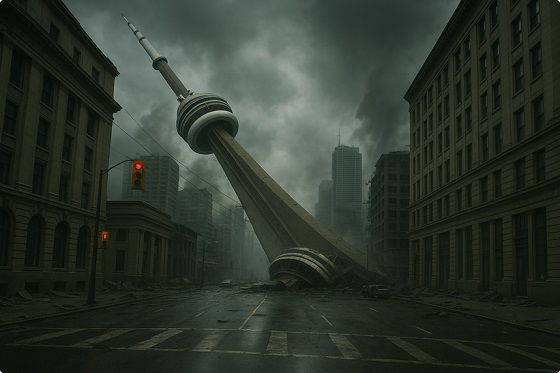
From the Frontier Centre for Public Policy
By Lee Harding
Lee Harding skewers Ottawa’s déjà vu politics: Trump is tariffing Canada into submission again, Carney’s Liberals are flailing, and Poilievre’s back—like none of early 2025’s drama ever happened.
The Liberals swapped leaders, but not direction, and the country is paying for it
New year, new prime minister—same failures. Mark Carney’s Ottawa looks just as weak and directionless as it did under Justin Trudeau, and Canadians are paying the price.
Despite the drama of 2025—Trudeau’s resignation, Carney’s rise to Liberal leader, an election fought on promises of competence, and Pierre Poilievre’s shock defeat—Canada has ended up right back where it started.
Poilievre is already headed back to the House after a resounding byelection win in Battle River–Crowfoot on Aug. 18, pulling nearly 80 per cent of the vote. But what’s changed? Carney’s shine has already worn off, and fewer Canadians than ever believe he can handle the country’s domestic or international challenges. Less than four months into office, the renewed Liberal government has left Canada weaker abroad and poorer at home.
The Carney honeymoon ended fast. Days after his victory, he posed alongside U.S. President Donald Trump, mimicking Trump’s signature “thumbs up.” Trump took credit for Carney’s win and revived his “51st state” rhetoric. Carney’s team scrambled to downplay the moment, but the damage was done. This was the man who promised to stand up to Trump, not stand beside him.
Worse, Canadians soon learned that Carney had quietly removed most tariffs on American goods during the campaign, a politically clever move that stripped Canada of any leverage. As a result, Trump’s administration steamrolled Ottawa with 50 per cent tariffs on Canadian steel, aluminum and copper, and 35 per cent on goods not covered by CUSMA.
While Canada floundered, global competitors moved in. The U.K., European Union, Japan, South Korea, Vietnam and the Philippines all inked new trade deals with Washington. Once seen as a preferred partner, Canada is now on the outside looking in.
Diplomatic humiliation followed. On the very day Poilievre won his byelection, Trump convened NATO allies to discuss a peace framework for Ukraine and Russia—Canada wasn’t invited. Once proud of our role as an honest broker and middle-power influencer, we’re now irrelevant.
Carney’s much-hyped economic expertise has also fallen flat. He appeared willing to govern without a federal budget—an act of arrogance or incompetence, take your pick. After backlash, he promised a fall budget, but there’s still no credible plan to rein in deficits or restore confidence. Even Air Canada workers ignored his calls to return to work.
A long-overdue defence spending pledge of $8 billion has been mostly swallowed by decarbonization programs, doing little for national security. Meanwhile, the government’s environmental agenda continues to punish the economy. Slashing the consumer carbon tax to zero was a headline grabber, but industrial carbon taxes and regulatory burdens continue to rise, choking off investment, productivity and competitiveness.
Western alienation is deepening. The Carney government’s shortcut for approving energy projects, fast-tracking anything “in the national interest,” politicizes resource development and creates uncertainty. Carney has even hinted that Indigenous groups may gain veto power, further muddying the investment landscape.
The economy is stagnant. Canada’s international stature is diminished. The West remains ignored. For many Canadians, Carney looks like nothing more than Trudeau 2.0.
Incredibly, we’re right back where we were when the year began. Trump is blocking our exports. The prime minister can’t stop him. And Pierre Poilievre is back in Parliament, sharpening his attacks.
The only real difference? The NDP doesn’t have a leader. But once it does, it will be eager to bring down the government and try to rebuild its own credibility. Political change is coming—but not just yet.
Lee Harding is a research fellow with the Frontier Centre for Public Policy.
Frontier Centre for Public Policy
The Church Thrives When Its Values Clash With Cultural Norms

From the Frontier Centre for Public Policy
By Gerry Bowler
History shows the Church is strongest when it stands apart from the mainstream
“I used to be with ‘it’, but then they changed what ‘it’ was. Now what I’m with isn’t ‘it’, and what’s ‘it’ seems weird and scary to me. It’ll happen to you!”
That moment of cartoon wisdom from Grandpa Simpson in a classic episode of The Simpsons captures a truth that every generation eventually faces. And right now, it’s the Church that finds itself out of step with what society calls “it.” But history suggests that’s exactly when the Church does its best work.
A recent example makes the point. American Christian singer and activist Sean Feucht was banned from performing in several Canadian venues by authorities who considered his views on social issues a threat to “community values.” When the Ministerios Restauracion Church in Montreal allowed one of Feucht’s presentations to proceed, protestors disrupted the event by throwing a smoke bomb into the Church. Police fined the Church $2,500.
One of Feucht’s supporters expressed shock that church values were no longer considered community values. She hasn’t been paying attention. This disconnect didn’t happen overnight—it reflects a profound cultural shift over decades.
For centuries, church values—traditional Christian teachings on life, family and morality—were understood to be the moral foundation of Canadian life. From the Catholic roots of New France to the ministers of the gospel like Tommy Douglas, a Baptist preacher and father of Canadian medicare, and Ernest Manning, an evangelical leader and longtime Alberta premier, Christian influence helped shape this country’s civic culture. Even our national anthem appeals to God.
But since the 1960s, the culture began to drift away from long-established teachings on sex, alcohol, gambling, drug use, abortion, euthanasia and marriage. In response, the largest Protestant denominations—United, Anglican and Presbyterian—watered down their doctrines and embraced the new permissive values of the day.
The results were predictable. Churches that held firm to historic teachings retained and even grew their membership. Those that compromised with secularism lost adherents and saw their influence decline. After all, why would anyone dress up for Sunday service to hear the same moral platitudes already available on every CBC morning show?
Being out of step with the culture isn’t a new role for the Church. History shows that its moral leadership often sparked real social change, especially when it stood against powerful interests.
In ancient Rome, Christians condemned the practice of leaving unwanted infants to die. When Christianity took hold among the ruling class, Roman emperors banned infanticide.
While gladiator games filled arenas with bloodlust, the Church demanded their end. When medieval knights pillaged and murdered at will, the Church established the Peace of God and the Truce of God, protecting peasants and limiting warfare to preserve crops and communities.
During the height of the African slave trade, Quakers, Anglicans and English evangelicals led the decades-long campaign to end the practice. In the 19th century, Church-led reformers fought to abolish child labour, curb alcohol abuse and win women the vote.
Today, many of the moral issues once opposed by the Church are now promoted or normalized by the state itself. In 21st-century Canada, the government sells drugs, alcohol and lottery tickets. Pornography is widely accessible online. Euthanasia is now considered a form of health care in Canada, including in cases involving mental illness and the elderly.
That Church values no longer align with community values should come as no surprise.
Nor should it be cause for alarm. The Church is once again where it has often been: outside the halls of power, surrounded by cultural opposition. And that is where it has always done its most important work.
Gerry Bowler is a Canadian historian and a senior fellow of the Frontier Centre for Public Policy.
-

 Addictions1 day ago
Addictions1 day agoWhy North America’s Drug Decriminalization Experiments Failed
-
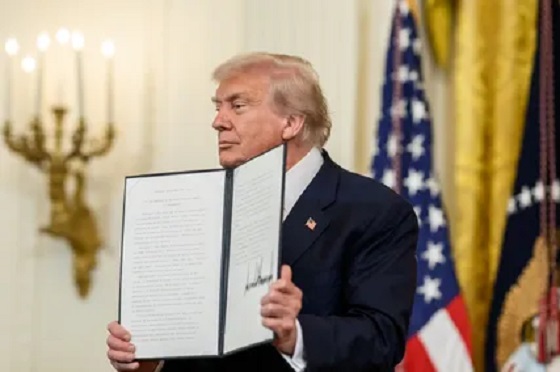
 Business2 days ago
Business2 days ago“SCAM OF THE CENTURY”: Trump vows to replace unreliable renewables with real energy
-

 Business2 days ago
Business2 days agoIs Canada’s $100B+ Climate Plan Based on Shaky Science?
-
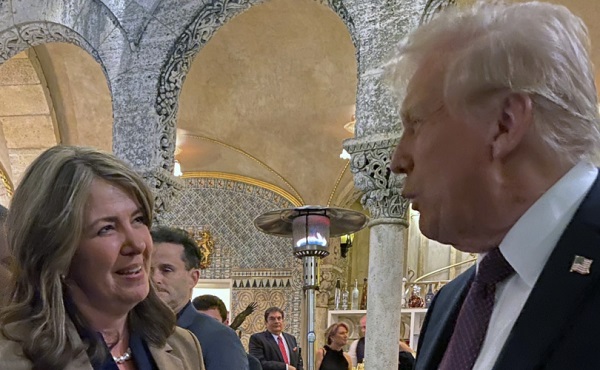
 Alberta1 day ago
Alberta1 day agoGood Sense Beats Team Canada’s Hysteria
-

 Business2 days ago
Business2 days agoDisney scrambles as young men reject DEI-filled franchises
-

 Energy1 day ago
Energy1 day agoSolar, Wind Might Not Be Totally Dead Under Trump
-

 Business1 day ago
Business1 day agoCarney’s housing plan will likely spend a lot for very little
-

 Crime1 day ago
Crime1 day agoTrump plans to clean up Democrat-run cities over local objections




